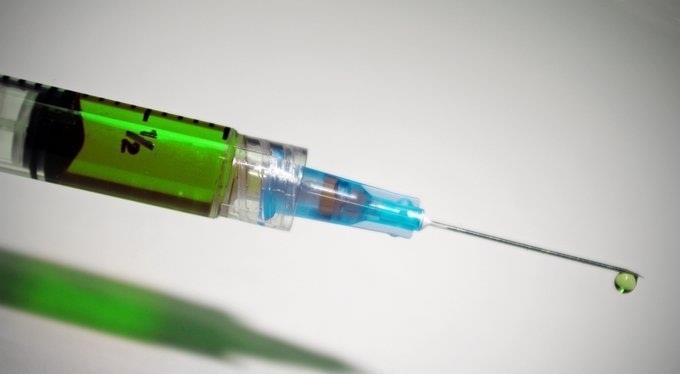
New MMR-Based Trivalent Vax Candidate To Fight Measles, Mumps & Covid
The study builds upon previous studies that involved inserting a highly stable segment of the coronavirus spike protein into the measles vaccine or mumps vaccine.
In a paper, published in the journal Proceedings of the National Academy of Sciences, scientists reported the new MMS vaccine candidate -- for Measles, Mumps and SARS-CoV-2 -- delivered via the nose that provides broad and long-lasting protection against Covid-19 infection.
In two rodent models, the intranasal vaccine triggered a strong neutralising antibody response plus protection in mucosal areas lining the nose and lungs, and prevented disease symptoms such as weight loss and tissue damage, said the team from the Ohio State University in the US.
In hamsters, antibodies against SARS-CoV-2 induced by the MMS vaccine lasted at least four months without any sign of decline.
It also protected against the ancestral SARS-CoV-2 virus and two variants: Delta, which was associated with more severe disease, and Omicron BA.1, which spread much faster.
"The beauty here is we already know the measles-mumps-rubella (MMR) is used in children, so we're building on a 50-year safety record," said Jianrong Li, Professor of virology in Ohio State's Department of Veterinary Biosciences and Infectious Diseases Institute.
"We inserted three different spikes that allow broad neutralising antibodies to protect against the different variants of concern of SARS-CoV-2. It's quite promising, and would be a fantastic new type of vaccine to prevent Covid-19," Li added.
In addition to the promising platform and the bonus mucosal protection that comes with intranasal delivery, the technique used to create the coronavirus antigens that stimulate immunity contributes to the vaccine candidate's effectiveness, Li said.
Using one measles strain and two mumps strains, the team inserted the antigens in the same location in each platform virus's genome to enable expression of the optimal amount of spike protein and robust replication of the platform viruses -- both actions needed to trigger a strong immune response.
Tests in mice used to model an immune response showed intranasal delivery of the MMS vaccine generated neutralising antibodies in the bloodstream against the three variants as well as specialised antibodies called IgA on mucosal surfaces of the airways and tissue-resident T cells in lungs that help boost clearance of viral particles.
"These are two main advantages of intranasal vaccines: generating IgA in the nose and lung to prevent the virus from travelling to other organs or the blood, and producing tissue-resident T cells in the lung to rapidly mount an effective immune response to previously encountered pathogens, in this case SARS-CoV-2," Li said.
"The mRNA vaccines injected intramuscularly primarily generate antibodies in the bloodstream, but do not produce these types of added protection for the lungs."
--IANS
rvt/ksk

Legal Disclaimer:
MENAFN provides the
information “as is” without warranty of any kind. We do not accept
any responsibility or liability for the accuracy, content, images,
videos, licenses, completeness, legality, or reliability of the information
contained in this article. If you have any complaints or copyright
issues related to this article, kindly contact the provider above.

















Comments
No comment